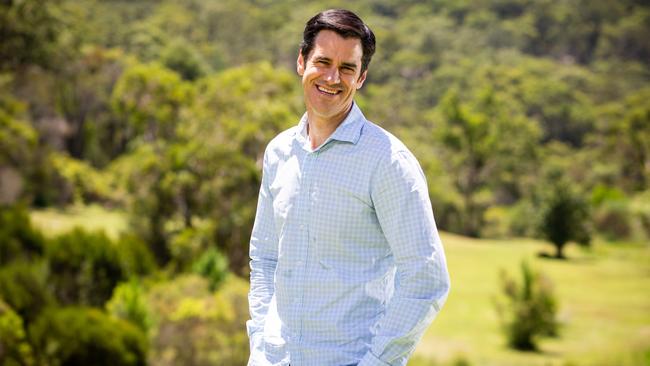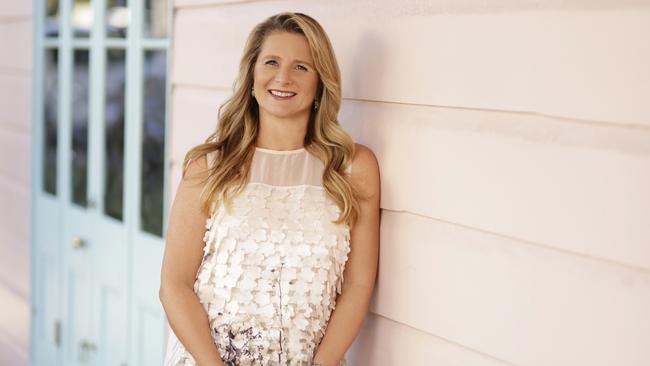Baby Boomers’ $220bn-a-year wealth giveaway: what it means for you
Our richest generation is retiring and the great Aussie wealth transfer is under way, with Gen X and Y the biggest beneficiaries, but there are money traps to avoid.
Companies
Don't miss out on the headlines from Companies. Followed categories will be added to My News.
Baby Boomers, the richest generation in history, are passing on their trillions of dollars of wealth – both before and after they pass away – as their children inherit the Earth.
The great Australian wealth transfer is under way and is estimated to see more than $200bn annually handed to children and grandchildren, largely Generations X and Y, but there are some costly traps that can hurt those unprepared.
The popular acronym from a decade or so ago – SKI, or spend the kids’ inheritance – has been replaced by a more generous Bank of Mum and Dad helping out younger generations financially as parents see how tough it is for their children to buy a home amid sky-high property prices.
Big numbers
Social researcher Mark McCrindle said the wealth transfer was under way but parents’ nest eggs continued to grow.
In 2017 Australia’s over-65s held $2.5 trillion in private wealth, and that had grown to $3.2 trillion by 2023 thanks to rising property and share prices, he said.
“As much as they are passing it on, their own wealth is growing faster than the $200bn a year can be given away,” Mr McCrindle said, attributing this largely to rising real estate values.
“Baby Boomers are the highest net wealth generation Australia has ever had – now one quarter of the population, they own half of the national private wealth,” he said.
“I don’t see that being equalled again. The Gen Xers are doing pretty well and will come close, but Millennials are further behind than their parents were at the same age – they have fallen behind on property ownership, and it’s the property wealth that has been the wealth accumulation vehicle for the Baby Boomers.”

Mr McCrindle said Boomers were Australia’s first generation to widely own investments outside the family home through superannuation, the stock market and property investments.
Some were selling assets to help their children, while others were downsizing and sharing the money “because they can, and they see the situation their children generally are in”.
Housing help
Mr McCrindle said the most widely-used way to assist was letting adult children live at home longer while saving a deposit. The next step up was being actively involved with helping children save a deposit or going guarantor on their home loans, while the step up from that was co-investing, he said.
“Boomers are true believers in property,” he said.
Mr McCrindle said parents were also looking to reduce their children’s HELP study debts: “it didn’t matter when inflation was low, but these days it’s going up”.
A big issue is handing over inheritances too late in life, with some children receiving money in their fifties rather than in their twenties and thirties when they really need it.
There was also uncertainty on the tax side, such as talk of death duties and tax-related changes to superannuation and dividend income.
Mr McCrindle said the best option to help was often not simply handouts, but helping to guide children towards greater wealth. “Make them responsible,” he said.
Financial strategist Theo Marinis said Baby Boomers themselves were still receiving inheritances from their parents.
“The depression generation passing away is leaving money to Baby Boomers,” he said.
A complex, confusing and underfunded aged care system is also weighing on seniors’ long-term financial planning.
Housing wealth has been the biggest factor lifting the assets of older generations, and many are now sharing their experiences and knowledge with their offspring.

“One of the reasons the housing market is doing so well is the Bank of Mum and Dad helping children,” Mr Marinis said.
Many are thinking “why leave it until I’m dead” and assisting children and grandchildren with deposits, mortgages and education costs, he said.
Get advice
People could encounter costly traps in areas such as tax and superannuation when planning inheritances, Mr Marinis said.
“By all means get advice … we look to structure it so it’s tax-effective for the next generation.”
This can include switching super between partners to even out balances, and withdrawing money from super then re-contributing it reduce the impact of what is effectively a death tax in Australia – where super is often taxed upon inheritance if the recipient is not a dependent.
While Baby Boomers have the biggest share of wealth, Mr Marinis said younger generations who inherited their parents’ money would claim this once mum and dad passed away.
“Hopefully, on balance, the next generation has it better off than the previous generation,” he said.
Author and financial adviser Helen Baker said she was seeing some parents give money early to their children so they could enjoy it now.
Others were putting assets in children’s names, while some had “granny flats on the back of their child’s house to move money but still keep a roof over their head”.
Ms Baker said structuring assets and inheritances was vital, and there were pros and cons to doing this different ways.
“It being distributed through a trust or company or just income from these or lump sums, and how often?” she said.
“If it is a gift for, say, a house, is there a clawback or contract in case their future relationship breaks down, or has the money now gone to the family member’s ex?
“Does it make sense to buy things together – do you affect their pension? Or can it help manage tax of the younger person who is working?”
Ms Baker said people with wealth often used testamentary discretionary trusts in their wills to protect money and achieve good tax benefits when passing it on.
Super strategies
Superannuation is many Australians’ largest or second largest asset, depending their property ownership, and Ms Baker said care should be taken in setting up beneficiary nominations and strategies.
She said with the right strategies, super could often be transferred to adult children in a tax-free manner. “Otherwise they may pay what we in the industry call an inheritance tax on super distribution.”

Ms Baker said timing and planning were key when moving investments and structuring around tax.
“Moving money in a tax effective way means more money overall for the whole family, but you need to do it in the right way,” she said.
Don’t fall short
Many Australians think they need more money than they really do, and often die with the bulk of their superannuation intact.
However, surging inflation and a much higher costs of living in recent years has made it tougher to work out what you will need, and what you can give. Aged care issues also fold into these fears.
“Once it’s gone, it’s gone,” Ms Baker said.
“Given to children you no longer have any control. And many times these kids earn more money than their parents ever did.”
Money issues can also lead to abuse. “Are your children withholding grandchildren if you don’t give them money?” Ms Baker said.
Some parents gift assets to children so they can get some age pension, but Centrelink has strict gifting limits of $10,000 a year or $30,000 over a five-year period – so any plans to hand over big bucks should typically be done at least five years before the pension age of 67.
“If not done with understanding or the right strategy, it can be counter-productive,” Ms Baker said.
She said parents should also consider whether their money could end up with a child’s ex-partner if their relationship broke down, and whether their children were likely use their money wisely.
Gathering pace
A recent report by trading platform AUSIEX says the pace of intergenerational wealth transfer has quickened as Baby Boomers reassess their lives following the pandemic.
“Within five years, all Baby Boomers will be eligible for retirement and the Baby Boomer bubble will have all but left the workforce by 2028,” says the report, On the Precipice of Change.
“It doesn’t stop there. In 2027, the first of the Baby Boomers will reach their statistical age of death (of 81 years for men and 85 years for women),” it says.
The report says while Generation X are now preparing for retirement and will hold their parents’ inheritances among their large superannuation balances, the prospects for Millennials and Generation Z are more grim and a majority of adults believe their children will be worse off than they are.
Younger generations may have lower expectations of being able to build wealth and are also disengaged with the system, it says.
More Coverage
Originally published as Baby Boomers’ $220bn-a-year wealth giveaway: what it means for you





